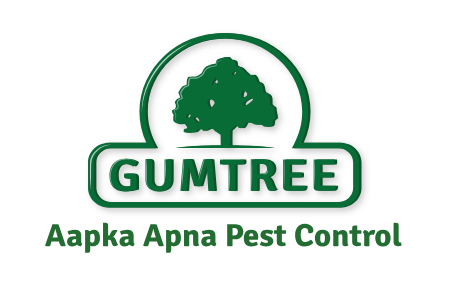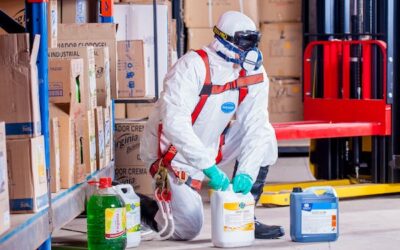Definition of eco-friendly pest control: Eco-friendly pest control, also known as green pest control or sustainable pest management, uses techniques and methods to minimize harm to the environment and human health.
Eco-friendly pest control can include using non-toxic or low-toxic pesticides, physical barriers and traps, biological control methods (such as introducing natural predators of the pest species), and cultural practices (such as improving sanitation to prevent pests from thriving).
Eco-friendly pest control aims to effectively manage pest populations without causing unintended harm to the environment or humans.
Importance of pest control in general:
Pest control is managing, eliminating, or reducing the population of pests. Pests can be a variety of organisms, including insects, rodents, and plant diseases, that damage crops, buildings, and other human structures or transmit diseases to humans and other animals.
Pest control is important for several reasons we have listed below:
Protection of human health: Many pests, such as mosquitoes, cockroaches, pigeons, ticks, and rodents, can transmit diseases to humans. Pest control can help reduce the risk of those diseases by eliminating or reducing the population of the pests that carry them.
Protection of crops: Pests can cause significant damage to crops, leading to reduced yields and economic losses for farmers. Pest control measures can help protect crops and increase their productivity.
Protection of buildings and other structures: Pests such as termites and carpenter ants can cause significant damage to buildings and other structures. Pest control can help prevent this damage and preserve the integrity of these structures.
Protection of the environment: Some pest control methods, such as chemical pesticides, can negatively impact the environment. Eco-friendly pest control methods can help minimize these impacts and protect the environment.
Environmental benefits of eco-friendly pest control

Reduction of chemical pesticides in the environment: While effective at controlling pests, chemical pesticides can negatively impact the environment.
Chemical pesticides used in pest control can leach into soil and water, where they can persist for long periods and potentially harm non-target species.
On the other hand, eco-friendly pest control methods, such as biological control agents or physical barriers, can reduce the number and quantity of chemical pesticides used and the resulting environmental impacts.
Protection of non-target species: Chemical pesticides can harm non-target species, such as beneficial insects, birds, and other animals, that they contact.
On the other hand, eco-friendly pest control methods are generally less toxic or non-toxic and protect non-target species from harm.
Preservation of biodiversity: Chemical pesticides can harm non-target species, such as beneficial insects, birds, and other animals, that they contact.
In contrast, eco-friendly pest control methods are less toxic or non-toxicn and preserve bio-diversity by protecting non-target species.
Health benefits of eco-friendly pest control
Reduction of chemical exposure for humans, pets, and farm animals: Chemical pesticides, while effective at controlling pests, can negatively impact human, farm animal and pet health.
Exposure to these chemicals can cause various health problems, including respiratory issues, neurological effects, and cancer in the worst cases.
Eco-friendly pest control methods are generally less toxic or non-toxic and reduce the risk of chemical exposure for humans, pets, and farm animals.
Improved air quality: Chemical pesticides can release volatile organic compounds (VOCs) into the air, contributing to poor air quality and respiratory problems.
Eco-friendly pest control methods, such as physical barriers or traps, do not release VOCs into the air and can help improve air quality.
Also, though some eco-friendly pest control products also involve an aerial application, the biodegradable nature of such products makes them safely dissipate in the air and avoid harm.
Prevention of chemical contamination of food sources: Chemical pesticides used in agriculture can contaminate food sources, posing a risk to human health.
The manufacturers of chemical pesticides specify the “time-to-harvest waiting period,” after which the growers must not apply such products to crops. By not applying a pesticide for certain days before harvest, growers can ensure that the pesticide they applied has degraded by the time people consume it.
However, as it is difficult to monitor compliance with such practice, farmers may apply higher doses (than recommended by manufacturers) and close to the harvest resulting in pesticide residues in their crops destined for animal or human consumption.
Eco-friendly pest control methods, such as biological control agents or cultural practices, can help reduce the risk of chemical contamination of food sources.
Economic benefits of eco-friendly pest control
Long-term cost savings: Eco-friendly pest control methods can often be more cost-effective in the long term than chemical pesticides. For example, eco-friendly pest control may cost less as it requires fewer repeat treatments and may have lower disposal costs. In addition, eco-friendly methods can be less expensive to purchase upfront.
Increased property value: Commercial or residential properties that use eco-friendly pest control methods can be more attractive to potential buyers or renters, as they may be perceived as healthier and more environmental-friendly leading to an increase in the value of such properties.
Potential for government incentives and funding: Governments may offer incentives or funding for using eco-friendly pest control methods. Such incentives can help offset the initial costs of implementing eco-friendly pest control methods and make them more financially viable.
Conclusion
In conclusion, eco-friendly pest control has many benefits for the environment, human health, and the economy.
It can reduce the use of chemical pesticides, protect non-target species, and preserve biodiversity.
It can also reduce chemical exposure for humans, farm animals, and pets, improve air quality, and prevent chemical contamination of food sources.
In addition, eco-friendly pest control can result in long-term cost savings, increase property value, and potentially qualify for government incentives and funding.
Given the above benefits, it is important to consider using eco-friendly pest control methods to protect the environment and human health while promoting economic sustainability.







